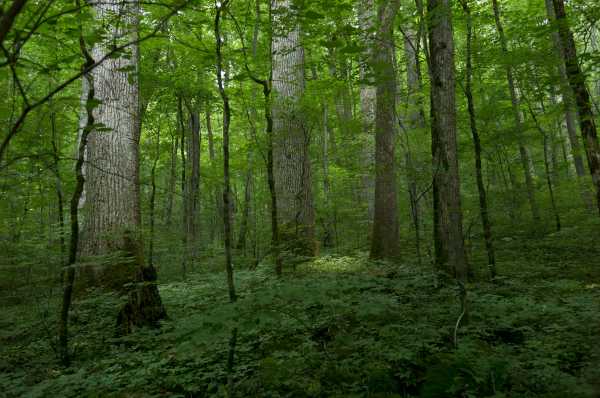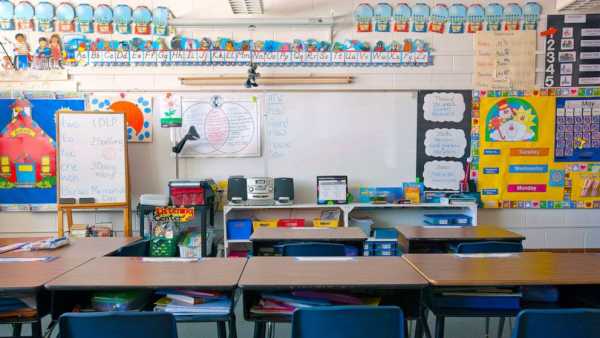
The Environmental Protection Agency (EPA) has announced a freeze on enforcing environmental regulations due to the coronavirus pandemic that is so sweeping in scope that critics have begun to argue the change is actually a bid to advance the Trump administration’s long-standing deregulatory agenda.
Under the new directive, announced Thursday, the EPA says it does “not expect to seek penalties for violations of routine compliance monitoring, integrity testing, sampling, laboratory analysis, training, and reporting or certification obligations in situations where the EPA agrees that Covid-19 was the cause of the noncompliance.”
The rule, which will remain in place indefinitely, means factories, power plants, and other major polluters have tremendous discretion in deciding whether or not they think the coronavirus will prevent them from meeting legal requirements on air and water pollution and hazardous waste management. The EPA will not be fining companies for violating certain requirements on limiting pollution during this time.
Many experts and environmental advocates say that while case-by-case relaxation of rules for companies that are short-staffed due to the pandemic makes sense, the expansiveness of the EPA’s directive appears both unprecedented and designed to give a green light to polluters to act recklessly at a time when air quality is acutely important for public health.
Cynthia Giles, the EPA’s former head of enforcement during the Obama administration, said she was “not aware of any instance when EPA ever relinquished this fundamental authority as it does in this memo,” according to the Guardian. She described the EPA’s suspension as “an abdication of EPA’s responsibility to protect the public.”
“This EPA statement is essentially a nationwide waiver of environmental rules for the indefinite future,” she said in a statement to the Hill. “It tells companies across the country that they will not face enforcement even if they emit unlawful air and water pollution in violation of environmental laws, so long as they claim that those failures are in some way ‘caused’ by the virus pandemic. And it allows them an out on monitoring too, so we may never know how bad the violating pollution was.”
Prior to the suspension, trade associations like the American Petroleum Institute were lobbying the EPA for more lax enforcement, like regulations on repairing leaky equipment. But the EPA’s move goes well beyond such targeted requests.
The EPA has pushed back against criticism, describing the policy as a temporary measure for dealing with the crisis, and told HuffPost on Friday that the agency retains “all our authorities and will exercise them appropriately.”
But Giles and other environmental advocates don’t buy that characterization. “Incredibly, the EPA statement does not even reserve EPA’s right to act in the event of an imminent threat to public health,” she told the Hill.
The EPA’s move is part of a broader pattern of the Trump administration’s lax oversight of favored industries
In the 24 hours after the EPA freeze, the Trump administration rolled out a host of other policies that suggested it’s exploiting the pandemic to more broadly deregulate the private sector and advance controversial policies surrounding both public health and the environment that might otherwise garner more scrutiny. HuffPost’s Alexander Kaufman and Chris D’Angelo have a good rundown:
Taken together, a broader pattern of privatization and deregulation is evident. And it’s consistent with the history of the Trump administration, which has taken steps to slash government regulations, privatize public programs and goods, and degrade the environment.
In recent months Trump and his administration have challenged EPA water rules, created a loophole to allow pipelines to avoid environmental review, and axed Obama’s signature climate change policy, the Clean Power Plan.
Overall, a New York Times analysis has found that the Trump administration has rolled back nearly 100 environmental rules and regulations. Its actions have made it easier to drill in wildlife refuges, slashed regulations meant to combat overfishing, and narrowed safety assessment requirements for potentially toxic chemicals.
Environmental advocates see the broad EPA freeze on enforcing rules as fitting that pattern, as a coalition of activists wrote in a letter to the EPA sent by the Environmental Integrity Project:
Trump has appeared to be playing favorites with politicians, voting blocs and certain industries when it comes to responding to the coronavirus crisis. Allowing the EPA to relax its policing certainly seems to fit that same mold.
Sourse: vox.com






